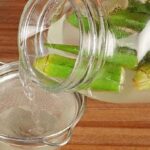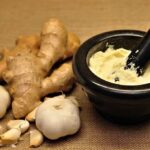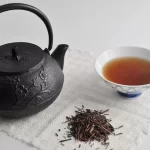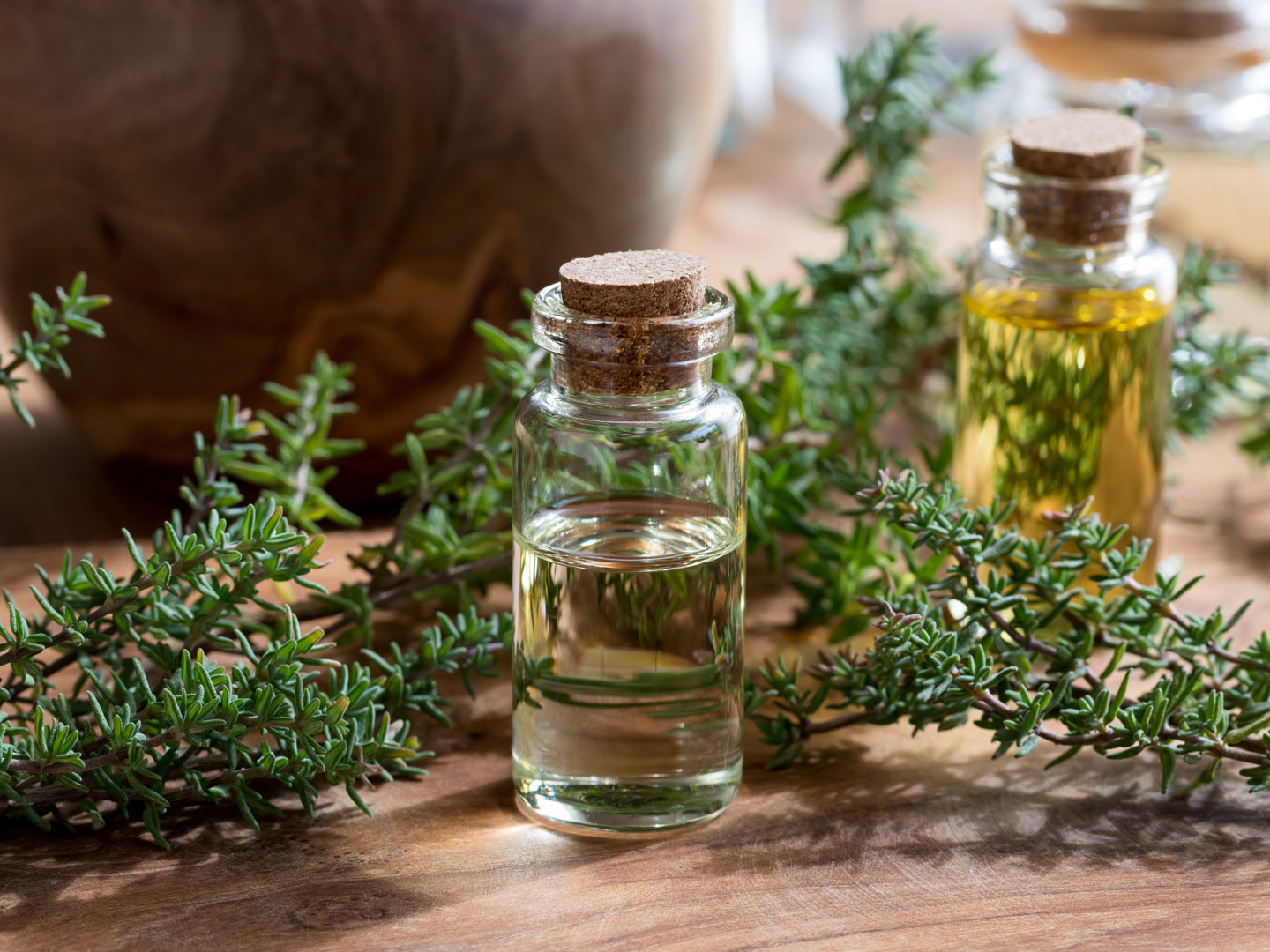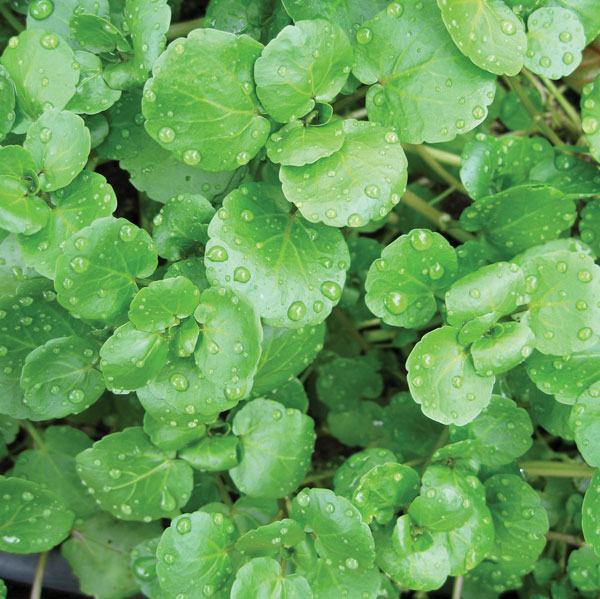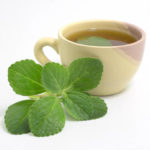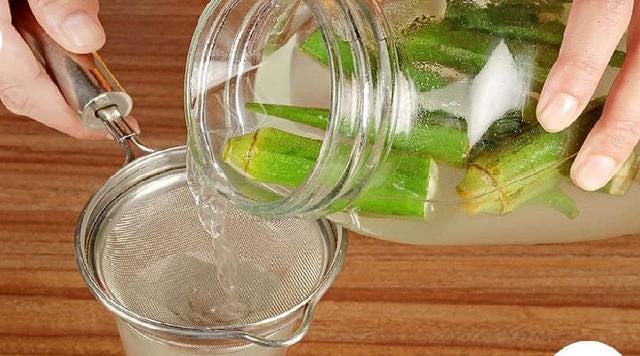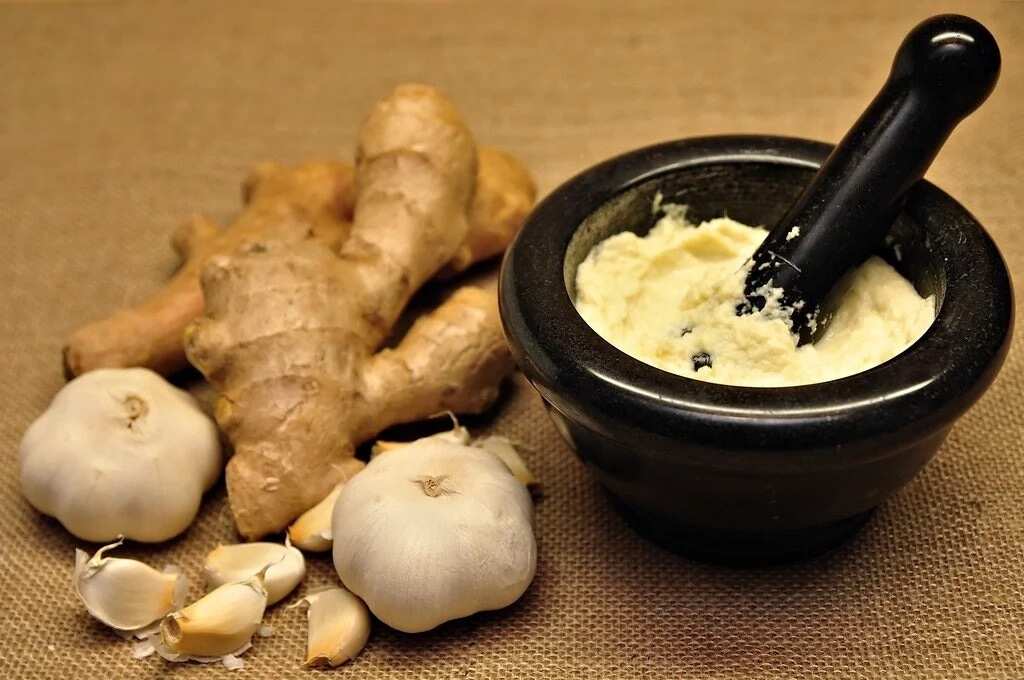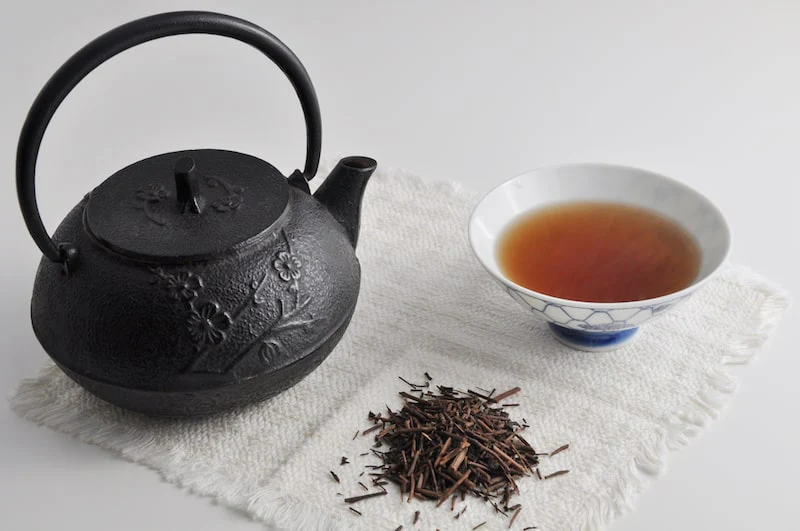Thyme Benefits and Its Essential Oil
Thyme benefits us in various ways as this medicinal plant is considered as one of the plants for infectious diseases. Thyme is powerfully antiseptic and also has natural stimulants.
Thyme has a pleasant aroma and since the ancient times, it has drawn the attention of the ancient Egyptians who derived joy in using it to produce ointments for embalming.
Presently, thyme benefits are quite enormous as it has the ability to stop putrefaction and reproduction of bacteria due to its thymol content and carvacrol, the two most powerful and effective antiseptic substances.
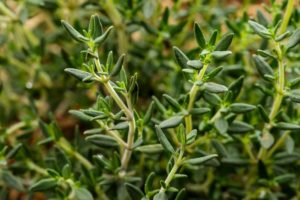
Thyme is a little shrub that belongs to the Labiatae family, it grows up to 30cm high and having woody stems that are quite branched. Thyme leaves are very small and oval-shaped. The edges are turned downside and somewhat lighter on their undersides.
SEE ALSO: Dates Fruit Benefits
The size of the flowers are very small, pink or white in color and terminal, it also has the upper lip divided into three superficial teeth having the lower side into two deep teeth. The parts of this plant that are useful are the flower clusters which includes the leaves and flowers.
Properties and Indications of Thyme
Thyme benefits us with its various essential substances, which includes two isomers. In essence, this plant holds about 1% – 2% of the above mentioned essence; thymol and carvacrol and the inclusion of various monoterpenes such as p-cymene, geraniol and borneol. Most of the properties of thyme come from the above mentioned substances.
Therefore, thyme is quite useful in the following cases:
Antiseptic
The thyme essence hold antiseptic effects quite superior to that of peroxide and oxide. In the ancient times, and within the nineteenth century, thyme benefited many people as it was used as disinfectant of the poor. As at those times, antibiotics were still not available.
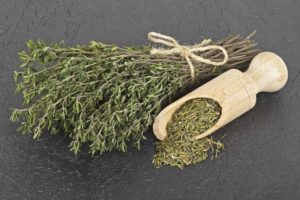
Thyme is capable of stimulating leukocytes, i.e. cause increase of leukocytes in the blood. This is one of its antimicrobial actions. This action helps facilitate the leukocyte activity.
Therefore, thyme benefits us and utilizing it for infectious diseases is paramount especially individuals with bacterial cause which affects the respiratory, digestive, genital and urinary systems.
Vermifuge
That’s to expel parasites of the intestine. For lice and fleas, it quite good for insecticides. Using the infusion or its essence is one the methods to prepare and use the thyme.
Respiratory system
Thyme benefits are in its expectorant, balsamic and antitussive properties which when combined with its antiseptic actions make it quite good for laryngitis, sinusitis, bronchial catarrh and bronchitis, spasmodic cough, asthma and whooping cough.
When treating cases mentioned above, it is therefore recommended to make use of the infusion or its essence and also consider inhaling it. Again, the intake should be at the time of influenza epidemics.
Digestive system
Thyme benefits are also seen in its digestion invigorating effects and also the prevention of flatulence and formation of gas. Therefore, it fosters digestion, increases appetite and also fights against putrefaction of the intestine which is caused by imbalances in the colon flora.
Urinary system
Antiseptic and diuretic properties of thyme is quite effective against urinary infections such as glomerulonephritis and cystitis.
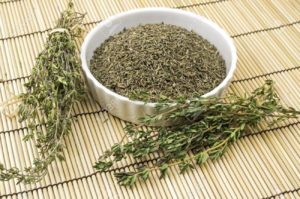
External application as a cleansing agent acts as expected on infections, especially on the external genitalia which may be as a result of diabetes, lack of proper hygiene or other reasons in vaginitis, vulvitis, balanitis, posthitis, infection of the foreskin and glands.
Oral afflictions
When used as rinses, it helps to fight against pyorrhea, sores and stomatitis. This is the inflammation of the oral mucosa. It is also useful in treating pharyngitis and tonsillitis when used as gargles.
Invigorates the hair
When applied as a massage or as a lotion precisely on the scalp, it strengthens the hair and also halts hair loss.
Skin Infections
The application can be through baths or compresses which may be applied on torpid wounds, chilblains, furuncles, varicose ulceration, abscesses and dermatitis.
YOU MAY LIKE: Benefits of Lemon Water
Anti-rheumatic
When applied externally as a massage, baths and poultices, it brings calmness on the rheumatic aches which may be caused by gout and arthritis. When it is consumed orally, it has diuretic and sudorific properties thereby eliminating excess acid metabolic waste from the blood which may result to gout and arthritis.
Thyme benefits are also in its external applications which is capable of alleviating pain generated by stiff neck, sciatica, arthrosis, lumbalgia etc.
Uses of thyme oil and thyme benefits
Many studies support the use of thyme essential oil because it has the ability to alleviate inflammation, fight against foodborne bacteria and also gives support to heart health.
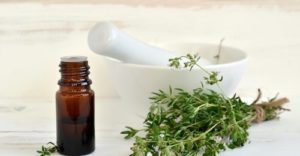 That being said, it is also noteworthy that no thyme oil is indicated to cure any kind of disease. However, thyme benefits are quite enormous that it can be used in certain therapeutic programs which is targeted at combining it with other medications.
That being said, it is also noteworthy that no thyme oil is indicated to cure any kind of disease. However, thyme benefits are quite enormous that it can be used in certain therapeutic programs which is targeted at combining it with other medications.
Nevertheless, thyme oil holds various compounds with astronomical health benefits. According the healthline, the compounds are:
- Thymol as mentioned earlier
- Linolool
- Carvacrol as mentioned above
- Camphor
- Cineol
- Borneol
These compounds mentioned above are useful when considering thyme oil for any treatment.
- Alopecia areata
As stated before, thyme oil is capable of preventing hair loss. To achieve this, mix thyme oil with a carrier oil and other essential oils and administer via massage.
- Acne: Thyme oil is also useful in bringing down acne-causing bacteria which happens on the skin.
- Studies have shown that some wild thyme extract seem to be beneficial in fight against cancer of the breast.
- Thyme oil is used to eliminate Baxter and fungi in certain foods. Thymol and thyme have antibacterial effects against staphylococcus aureus, salmonella and helicobacter pylori
READ ALSO: Lavender Uses and Benefits
Preparation and Use
Internal Use
- Making an infusion with 20 – 30 grams of the flower clusters in one liter of water. The recommended dose is 5 cups daily. When it is concentrated, 50 – 65 grams per liter of water is good enough to achieve a stimulating effect which is somewhat similar to that of a coffee or tea.
Thyme is so good that it lacks any disadvantages coffee or tea may offer.
2. Thyme essence: 2 – 3 drops on a daily. Do not exceed this dosage.
External use
- Essence: Inhaling the steam is recommended
- Gargles and Mouth Rinses: 100 – 200 grams of flower clusters in a liter of water can be put together to get the decoction. You will have to boil the liquid until it reduce to half.
- Decoction: baths and compresses with the decoction
- Massage: lotion and massage witht the above mentioned decoction or with the essence
- Poultices: Before applying to the aching area, wrap the leaves or flowers of thyme not including the branches, in a cotton material. Heat the cloth over a heater or on an iron and apply to the area where it aches the most.
Some Side Effects
Those who have an allergy to mint may also be allergic to thyme oil and thyme. The following adverse reactions have been linked to thyme oil.
- Dizziness
- Conjunctivitis
- Asthma
- Allergic reactions (hay fever symptoms)
- Gastrointestinal distress or irritation
- Muscle weakness
Consult your doctor before using thyme oil, most especially the breastfeeding mothers.
Again, do not swallow thyme oil.
SEE MORE ARTICLES BELOW
Health Benefits of Blueberries
Anxiety and an Anxiety disorder

A graduate of Computer Science and Information Management Technology. Diploma – Caregiving, Certificates – Dementia and Diabetes Awareness and Management. A researcher, blogger, songwriter, singer and acoustic guitarist. Born in an environment where natural talents such as healing are imparted at our natural birth. This natural talents of healing is the result of our genetic inheritance and the training from family environment.


